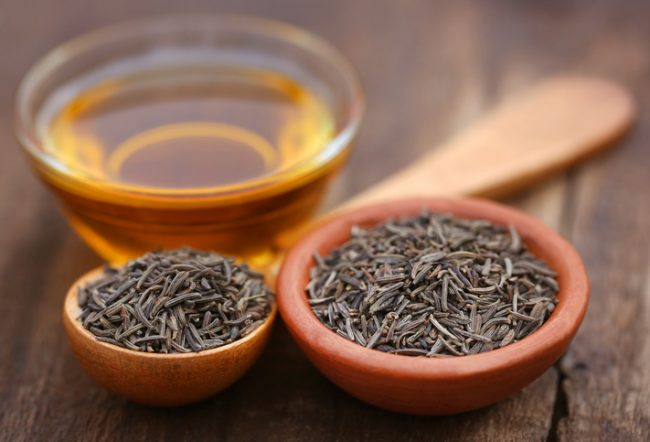Nigella sativa, also known as black seed oil, or black cumin or black caraway seed oil, is experiencing its moment in the health spotlight. Black cumin seeds are native to as Asia, and cultivated Europe and North Africa. N. sativa seeds are commonly known as black cumin and have long been utilized by other cultures as a spice, health remedy and beauty treatment.
Although the seeds and oil are prized in alternative medicine systems for addressing breathing, blood sugar, blood pressure, dizziness and skin issues, only in the last two decades or so has it really caught the eye of Western scientists and researchers.
To date, there are hundreds of studies exploring the quantifiable benefits of black seed oil, but the research is still murky. Black seeds oil’s active ingredient is thymoquinone, an extract touted for its potential antioxidant, anti-inflammatory and liver-protective properties.†
Preliminary scientific evidence (mostly done on rats) suggests that black seed might help with immune health, blood pressure health and even act as an antihistamine.† All these promising leads warrant more extensive study.
Currently not enough data supports black seed oil use as a solution for specific health issues—but you can still avail yourself upon its cosmetic and culinary properties. Here are three promising ways to explore black seed oil and seeds.
1. Hair
Black seed’s oil has properties that may be helpful for hair health. One 2013 study published in the Journal of Cosmetics, Dermatological Sciences and Applications showed that it may support thicker hair.†
Try massaging a tablespoon of liquid black seed oil into your hair to moisturize a dry scalp and promote growth.
2. Skin
Like argan oil, black seed oil is good for soothing skin and may even mitigate scar formation.† You can apply it directly to your skin or dilute it with a carrier oil. Another option is to use black seed soap.
3. Food
Black seeds, available at health food stores and online, have a pungent, peppery taste and add zest to stir- fries, curries, and salads. You can also try sprinkling the seeds on flatbreads or bagels, or try mixing the finely ground form into smoothies, juices or yogurt.
†These statements have not been approved by the Food and Drug Administration. These products are not intended to diagnose, treat, cure or prevent disease.




